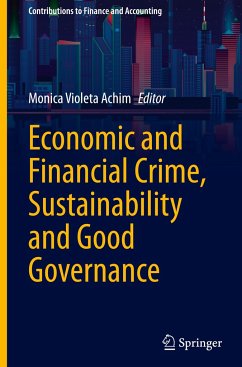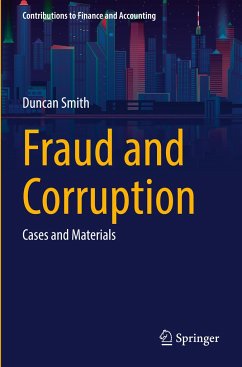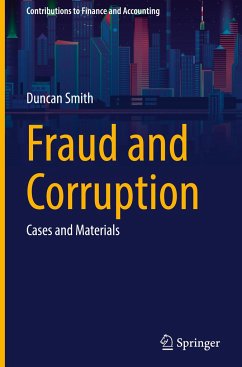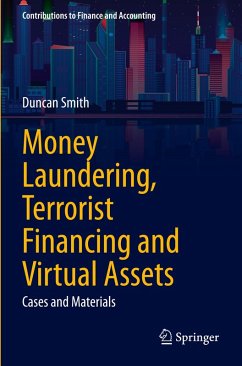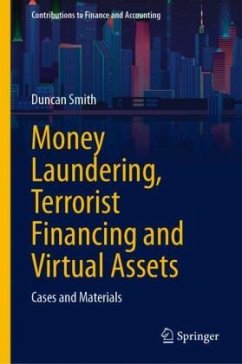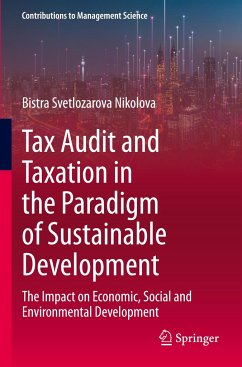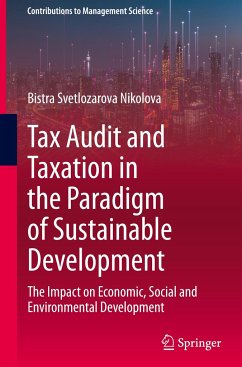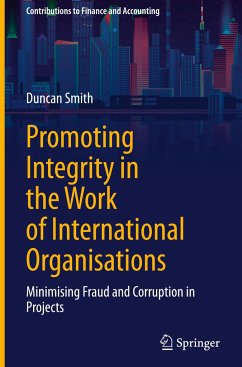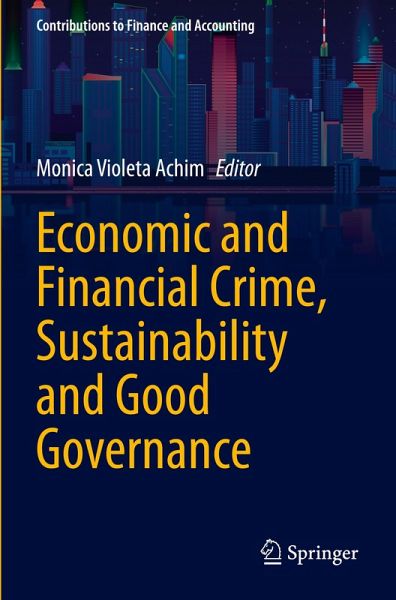
Economic and Financial Crime, Sustainability and Good Governance
Versandkostenfrei!
Versandfertig in 6-10 Tagen
166,99 €
inkl. MwSt.

PAYBACK Punkte
83 °P sammeln!
This book addresses the most widespread forms of financial crime today, namely corporate fraud, corruption, tax fraud, the shadow economy, informal entrepreneurship, money laundering, international informal capital flows, cybercrimes, and cryptocurrency scams. Given the rapid rise of digitalization, especially due to the COVID-19 pandemic, there has been a huge surge in financial crime, especially in the form of cybercrime, which affects people's financial security. Hence, the aim of this book is to stress the connected nature of financial crime and good governance, in order to achieve the mos...
This book addresses the most widespread forms of financial crime today, namely corporate fraud, corruption, tax fraud, the shadow economy, informal entrepreneurship, money laundering, international informal capital flows, cybercrimes, and cryptocurrency scams. Given the rapid rise of digitalization, especially due to the COVID-19 pandemic, there has been a huge surge in financial crime, especially in the form of cybercrime, which affects people's financial security. Hence, the aim of this book is to stress the connected nature of financial crime and good governance, in order to achieve the most positive, sustainable development of society.
The book analyzes financial crime in the context of digitalization. On the one hand, digitalization offers clear advantages in terms of reducing classical types of fraud such as tax evasion, corruption, the shadow economy, etc. On the other hand, digitalization offers new channels for criminals to gain illegal benefits when operating indigital space, e.g. through cybercrime, bank fraud, FinTech fraud, e-commerce fraud, etc. In this context, the term "digital shadow economy" has recently emerged in the literature as an expression of the types of fraud committed in digital space.
In addition, the book explores issues concerning changes in regulations for various financial crimes around the world, statistics, and ways to combat digital crimes including punitive, preventive and other measures. Special attention is paid to cybercrime and cybersecurity issues, the goal being to raise readers' awareness of these threats.
The book analyzes financial crime in the context of digitalization. On the one hand, digitalization offers clear advantages in terms of reducing classical types of fraud such as tax evasion, corruption, the shadow economy, etc. On the other hand, digitalization offers new channels for criminals to gain illegal benefits when operating indigital space, e.g. through cybercrime, bank fraud, FinTech fraud, e-commerce fraud, etc. In this context, the term "digital shadow economy" has recently emerged in the literature as an expression of the types of fraud committed in digital space.
In addition, the book explores issues concerning changes in regulations for various financial crimes around the world, statistics, and ways to combat digital crimes including punitive, preventive and other measures. Special attention is paid to cybercrime and cybersecurity issues, the goal being to raise readers' awareness of these threats.



